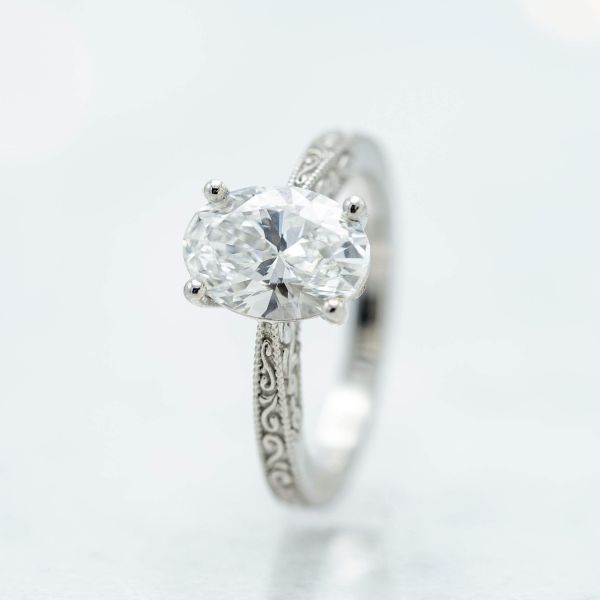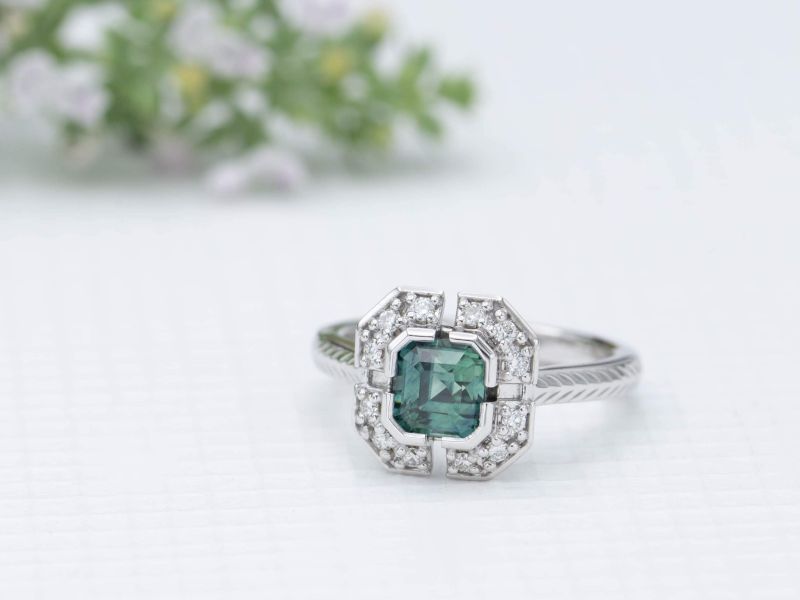Gemstone Knowledge
Gem Hardness
A guide to gemstone hardness and the Mohs scale
Gem hardness is the most broadly discussed measure of a gem's durability. Gems are graded on the Mohs hardness scale, which rates each gem's scratch resistance on a scale of 1 to 10. Here's how the most common gemstones rank:
Understanding the Mohs hardness scale
The Mohs hardness scale measures the scratch resistance of minerals. Minerals with a higher score are able to scratch those with a lower score. So the simple conventional wisdom is that diamond is the hardest mineral and nothing can scratch it, while it can scratch any of the materials below it. This isn't a complete view — there are a few rare materials that are even harder than diamond — but, when it comes to gems, it's a really helpful way to understand the relatively durability of materials.
You may be wondering why there is such a big difference between the relative hardness of diamond and even its closest neighbor, moissanite. The mohs scale is not linear — it's not exactly exponential, either. Essentially, that means the hardness difference between 9 and 10 is far greater than the hardness difference between 6 and 7. The absolute hardness of these materials can be measured using a tool called a sclerometer, which provides the measurements we use in the chart above to show the relative difference in hardness between the gems. This won't change much about how you consider the durability of a gem, but it can be helpful to understand just how big the gap is between diamonds and the rest of the pack.
We recommend focusing on the number 7, which is the hardness of quartz. Quartz is one of the most common minerals on the planet, and there are bits of quartz found in household dust. That means even gently wiping the surface of your gem can cause micro-scratches if your gem has a hardness lower than 7. Because of this, we classify those gemstones with a "delicate scratch resistance" in the chart above.
Understanding durability
While hardness provides the most important measure of a gemstone's durability, it's not the only measure. You'll also want to consider the gem's stability (how much it's impacted by temperature changes, chemicals, moisture, etc.) and toughness (how difficult it is to chip, cleave, or break). Our gemstone wearability guide provides an overview of these characteristics, and how we balance them to give each gem a simple durability grade. Click through to see some examples of gemstones whose grade may have been higher if we only looked at scratch resistance.
About CustomMade
CustomMade designs and creates one-of-a-kind, custom engagement rings and fine jewelry. Each piece we create is inspired by you, designed for you, and made just for you.

